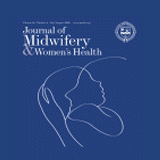
View Resource View Resource
Introduction: The Maternal and Newborn Health in Ethiopia Partnership (MaNHEP) aimed to promote equitable access to safe childbirth and postnatal care through a community-based educational intervention. This study evaluates the extent to which MaNHEP reached women who are socially and materially disadvantaged and, thus, at high risk for inadequate access to care.
Methods: The data used in this analysis are from MaNHEP’s cross-sectional 2010 baseline and 2012 endline surveys of women who gave birth in the prior year. A logistic regression model was fit to examine the effects of sociodemographic characteristics on participation in the MaNHEP program. Descriptive statistics of select characteristics by birth and postnatal care provider were also calculated to explore trends in services use.
Results: Using data from the endline survey (N = 1019), the regression model showed that age, parity, education, and geographic residence were not significantly associated with MaNHEP exposure. However, women who were materially disadvantaged were still less likely to have participated in the program than their better-off counterparts. From the baseline survey (N = 1027) to the endline survey, women’s use of skilled and semiskilled providers for birth care and postnatal care increased substantially, while use of untrained providers or no provider decreased. These shifts were greater for women with less personal wealth than for women with more personal wealth.
Discussion: MaNHEP appears to have succeeded in meeting its equity goals to a degree. However, this study also supports the intractable relationship between wealth inequality and access to maternal and newborn health services. Strategies targeting the poor in diverse contexts may eventually prove consistently effective in equitable services delivery. Until that time, a critical step that all maternal and newborn health programs can take is to monitor and evaluate to what extent they are reaching disadvantaged groups within the populations they serve.